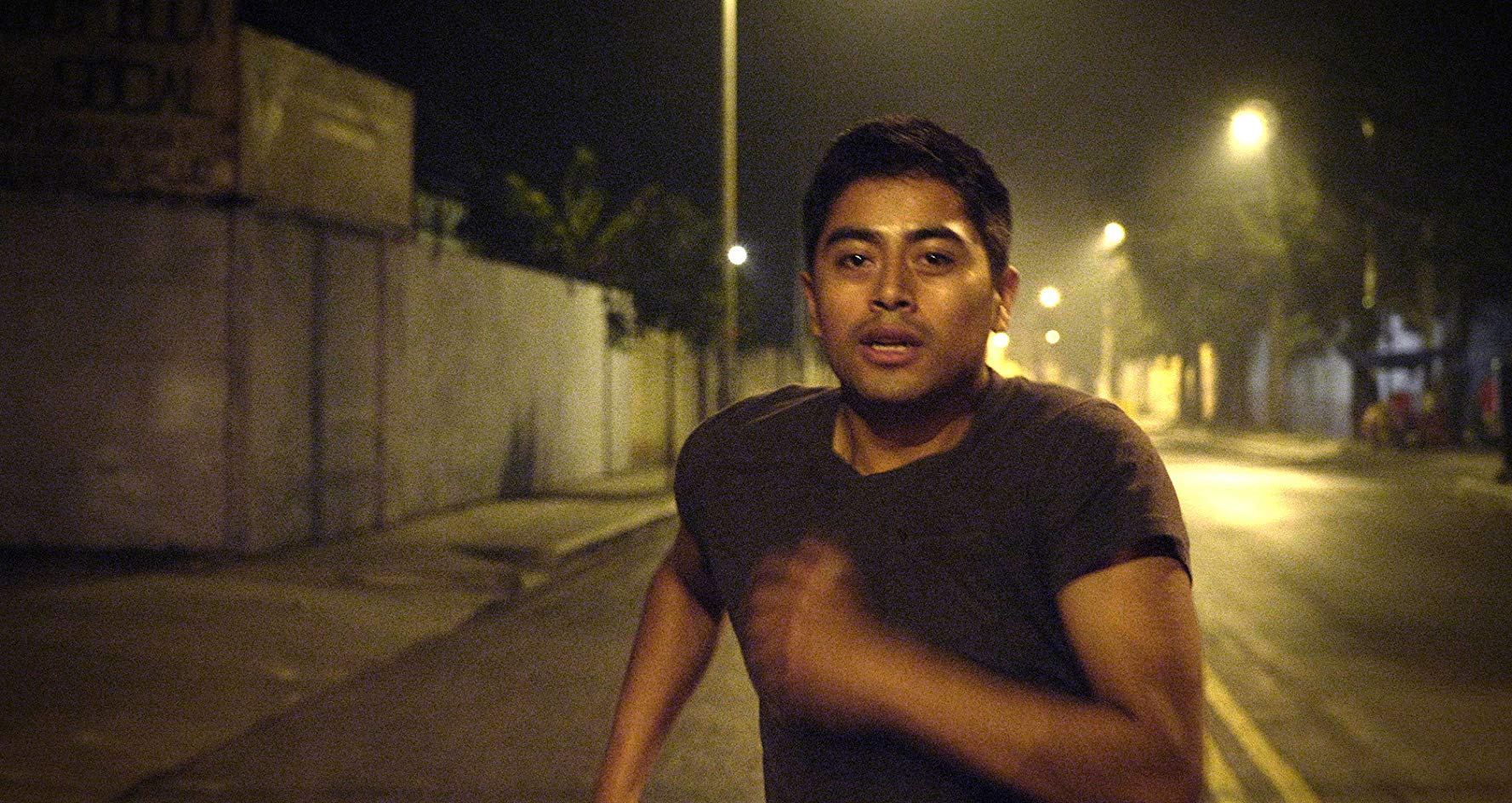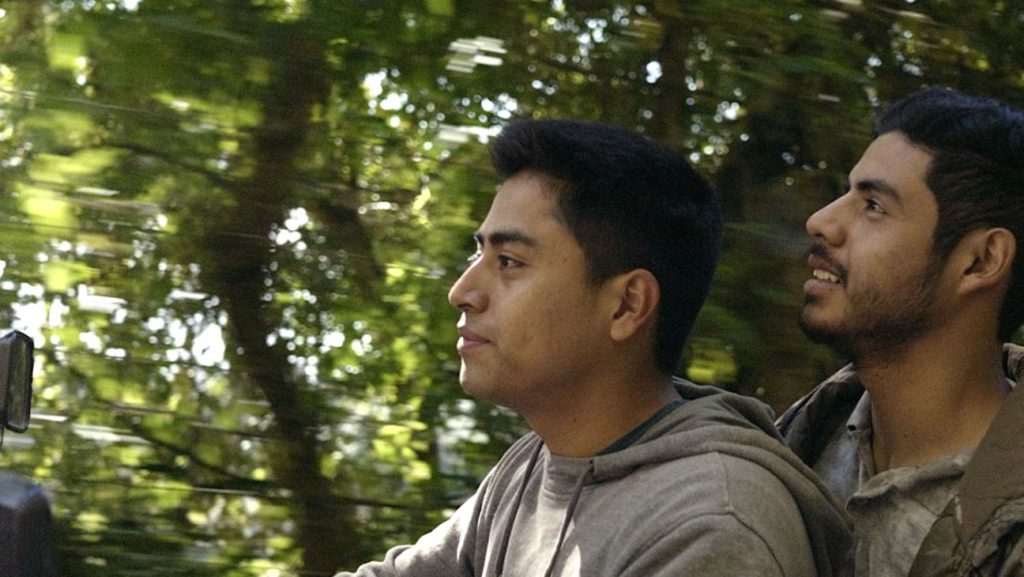An unassuming title like José fits this Guatemala-set story perfectly. With little plot to carry it, Li Cheng’s tender film is a character study of the titular José (Maya actor Enrique Salanic). The young man lives in Guatemala City with his mother. He spends his days chasing down customers in a busy intersection for the restaurant he works for, all the while being hooked to his phone as he arranges secret hookups with men in motels that rent by the hour. Eventually, he finds himself questioning his double life when he meets Luis (Manolo Herrera). A migrant worker from a rural area of the country, Luis awakens in José the desire for more. Can he run away with this new lover? Can he leave his mother and his life behind? Can the two carve a life for themselves amidst a bustling city and country in turmoil?
The questions are both earth-shattering and mundane. Moreover, they’re not presented in any kind of melodramatic manner. Instead, they become silent queries that run through José’s days as he shuttles between his hectic public life and his tender private one. Tackling and showing us how homophobia, poverty, violence, and broken infrastructures collide in current-day Guatemala, José feels almost like an ethnographic project. Cheng’s camera moves through Guatemala City in documentary-like fashion. Its opening sequences are almost dialogue-free, offering us a verité look at José’s daily routine: how he helps his mother get her stuff together so she can hawk it in the streets, how he walks to work across the traffic-ridden city, how he finds little connection to the busy life around him. With no music scoring these early scenes, there’s a sense that you’re merely observing life unfolding before you.

And so the pain of José registers as he ambles through his days. Stoic and reserved Salanic makes the young man a cipher. It’s only once Luis shows up that he begins opening up. So does the film. From the cramped urban landscapes that make up those first scenes, Cheng eventually opens up his lens towards greener and more rural areas. In so doing, he makes José a film about a journey in ways literal and figurative. Its most touching scene features Luis and José holding onto one another as they travel out of the city on a motorcycle, their intimacy both masked and out in the open.
Lest this romantic synopsis suggest that a story about a dark-skinned young man struggling in Guatemala is uncritically hopeful, the film eventually turns more dour: homophobia rears its head, violence hovers at its edges, and José’s strong family values and inherited ideas about masculinity come shining through. In this, it makes a fascinating companion to fellow queer Guatemalan film, Temblores. But where that gay conversion drama centered on a wealthy man’s struggle, José is squarely focused on what it means to come of age and come out as an indigenous gay man who barely makes a living wage.
The more Cheng’s camera follows José, in his intimate moments with Luis and later still with other men, the film’s neorealist sensibility makes clear that he’s but a distillation of stories happening not only all over Guatemala but all over Latin America. While the work of some of the nonprofessional actors used throughout rankles at times, it just adds to the sense that this is a film trying to bring truth to the screen. In between small earthquakes and street-side muggings, tender cuddling and awkward sex, José emerges as a film that’s raw and authentic. It ambles along to its own rhythm, preferring to let Guatemala’s reality in all its beauty and ugliness stand on its own for viewers to see.
José screened as part of the Panama International Film Festival







